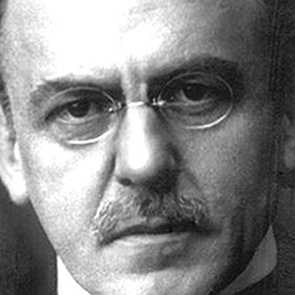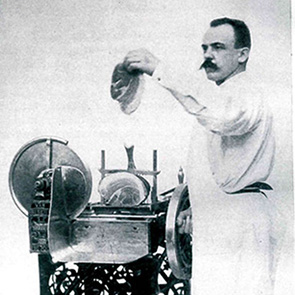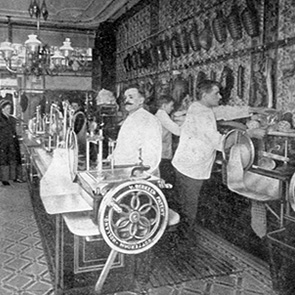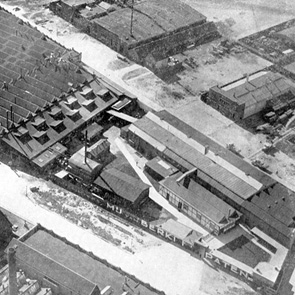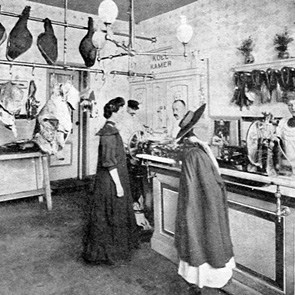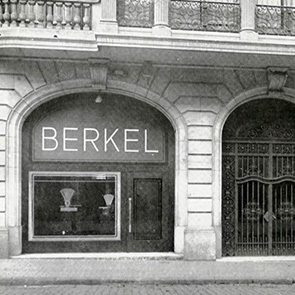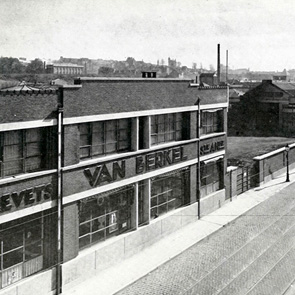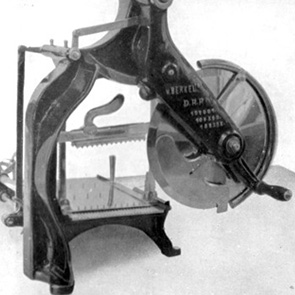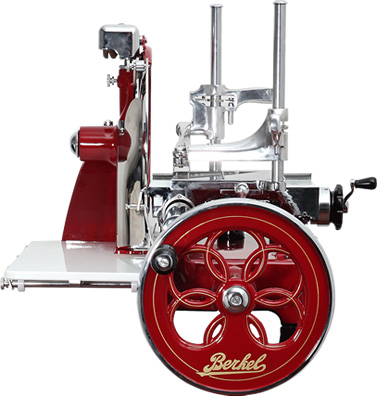The Berkel flywheel slicers were exhibited at the most important international trade shows, in which they started to achieve their very first official awards. In the first 30s of 900, the machines got the expected golden medals at the trade shows in Nord-Hansen (1904), Hamburg (1907), Düsseldorf (1908), Lyons (1913), San Francisco (1916) and Paris (1937). The Berkel flywheel slicers became more and more demanded by foreign markets, at the point that the establishment in Rotterdam was not in a position to satisfy the surge any longer. Therefore, the company decided to build up more factories in Denmark (1905), Sweden, Belgium and Switzerland (1909), United States, South America, Norway, Germany and France (1911), England (1913), Austria, Czech Republic and Italy (1924), Canada (1929), Spain and Portugal (1939). Van Berkel became soon a full-fledged multinational with their own manufacturing establishments worldwide.
